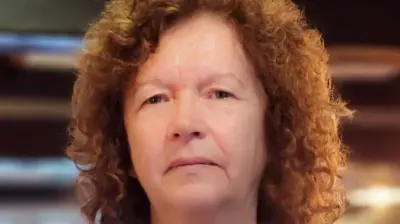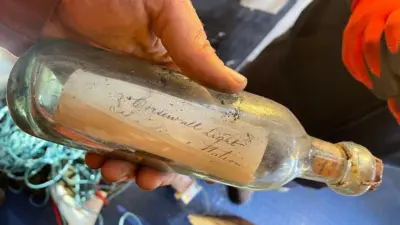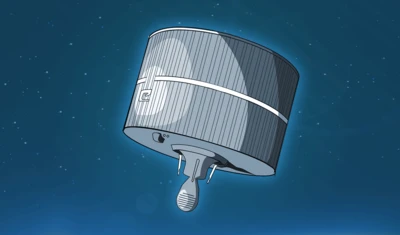We've updated our Privacy and Cookies Policy
We've made some important changes to our Privacy and Cookies Policy and we want you to know what this means for you and your data.
Commissioner Keith Towler: Smacking 'doesn't work'
Wales's children's commissioner has joined calls for a change in the law to stop parents smacking their children, as assembly members debate the issue.
Keith Towler said physically punishing children does not work and there was "no such thing as a safe smack".
AMs will be allowed a free vote on a motion calling for legislation.
Meanwhile, one senior MP wants the assembly's legal powers over smacking clarified by the Supreme Court.
A cross-party group of four AMs is urging the Welsh government to introduce legislation intended to outlaw smacking by removing the defence of "chastisement" for assaulting a child.
Members of all four parties will have a free vote when they debate the motion.
If passed, the motion would not bind the government.
The intention is to remove the legal defence of "reasonable chastisement" or "reasonable punishment".
It would mean if an allegation of hitting a child is made against an adult, there is less wriggle-room for those who might argue in defence that they had not realised they had hit the child so hard.
But it would not mean every parent seen giving their child a smack in public is arrested and charged.
The Welsh government says it wants to make physical punishment unacceptable by promoting "positive alternatives" to smacking.
Mr Towler, who is appointed as an advocate to speak up for young people on issues concerning them, said: "Children are the only people in the UK who can be hit without consequence.
"Children should be entitled to the same level of protection as adults. There's no such thing as a safe smack."
He said disciplining children through physical punishment was not effective, and that in some cases it can do physical and emotional harm.
'Support parents'
He added: "We need to recognise that parenting behaviour isn't going to change overnight and legal steps alone will not address the issue of children being hit in the home.
"We need to see the promotion of non-violent forms of discipline and support parents in the challenging but rewarding task of bringing up children.
"A change in legislation will help shift attitudes and behaviour relating to assaulting children - something which can't be done while the law condones smacking."
First Minister Carwyn Jones has said it is the view of Welsh ministers that it is possible for the assembly to amend the criminal law and "end the availability of the defence of reasonable punishment for those cases where it still applies to an offence of assaulting a child".
But Welsh Affairs Committee chairman David Davies said the issue should be referred to the Supreme Court if AMs vote in favour of a ban.
In a letter to Welsh Secretary Cheryl Gillan, Monmouth MP Mr Davies says: "Although it has some competencies in fields of child welfare, it has always been understood that the assembly cannot make criminal legislation."
He says the matter should be urgently referred to the Supreme Court if AMs pass the motion, so it can decide whether the assembly has legal powers to amend criminal law.
Mr Davies, who is opposed to a ban, adds: "I am a parent myself and I believe smacking should only be used where all other methods of managing behaviour have failed or the child puts themselves in danger."
In 2008 there was a dispute with the UK government about whether the assembly's law-making system at that time could be used to give Wales the power to ban smacking.
A Welsh government spokesman said: "This government is committed to work to make physical punishment of children and young people unacceptable through the promotion of positive alternatives and we believe this is the best place to start."
A Wales Office spokesperson said: "There are no firm proposals at present for the assembly to legislate to impose a prohibition on smacking.
"The government will await the outcome of the vote and any proposals which subsequently come forward."
Top Stories
More to explore
Most read
Content is not available








